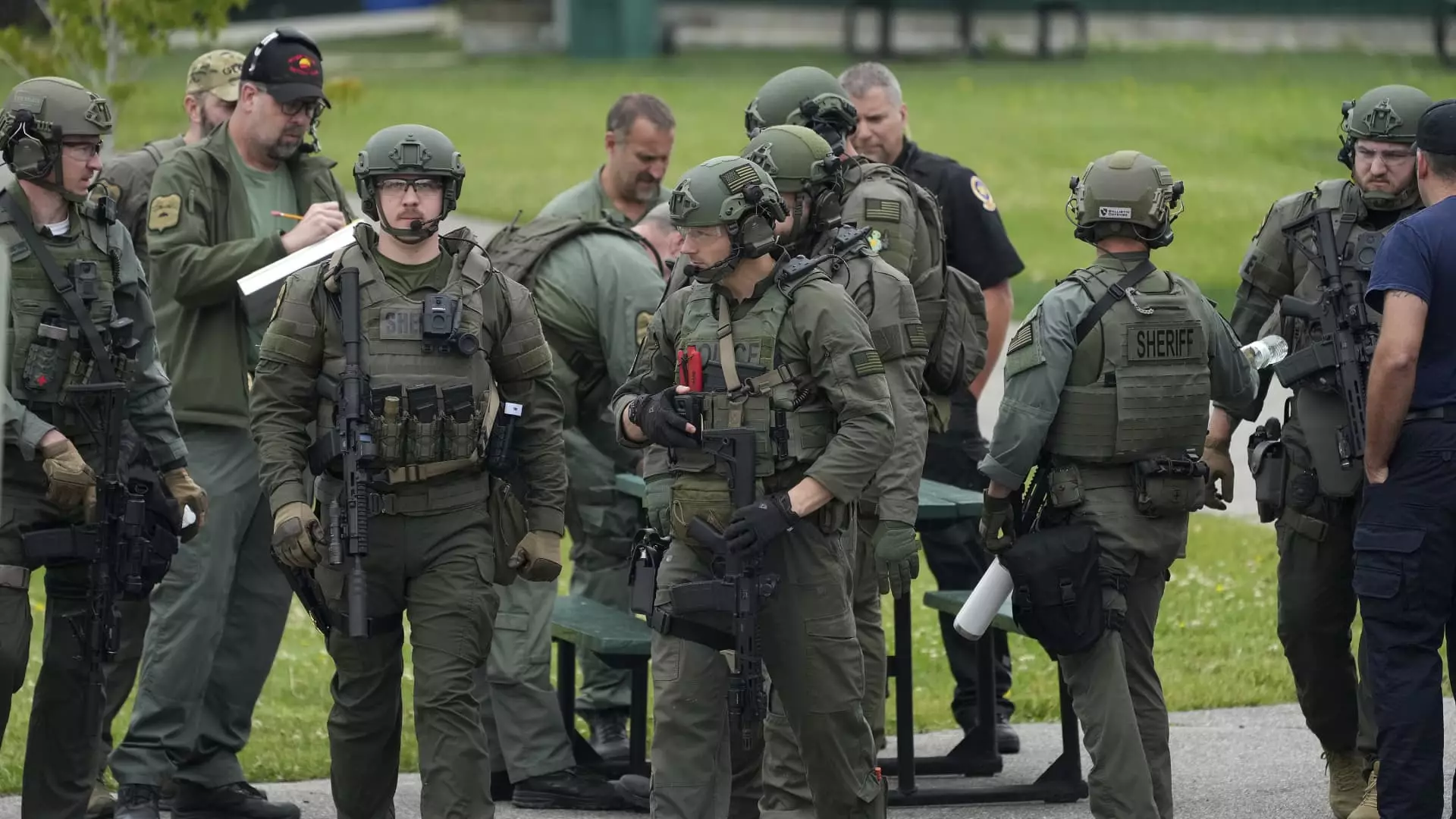On an unsettling Saturday morning, tragedy struck Minnesota as state Rep. Melissa Hortman and her husband, Mark, were mercilessly gunned down by a perpetrator disguising himself as a police officer. This heinous crime, labeled a “politically motivated assassination,” sets a dark tone for the current state of political discourse and safety in America. The manhunt for the suspect, identified as 57-year-old Vance Luther Boelter, has propelled a nation already frayed by division further into turmoil. To attack elected representatives, especially in such a brazen manner, invokes deep concern regarding political extremism, leaving legislators and citizens alike feeling vulnerable in what should be a democratic society.
Fear Is the New Norm
The impact of the attacks ripples beyond just the immediate victims; it has instilled a sense of fear within government institutions across Minnesota. When Democratic Senator Amy Klobuchar commented on the severity of the situation, she echoed what many are feeling: a worry that the gunman is still at large and may target more individuals. Her warning that “this man will kill at a second” underscores an alarming reality. For many politicians and public servants, the notion that public service could come at the cost of their very lives is chilling. It begs the question: how far have we slid down this slope of hatred and violence?
Political Violence: A Deep-Rooted Issue
What this tragedy highlights is more than just an isolated incident of violence; it reflects a deeply entrenched issue within our political landscape. As bitter partisanship continues to grip the nation, the lines between political discourse and personal vendetta are becoming increasingly blurred. Hortman’s assassination was not a random act of violence but rather a calculated attack that symbolizes a growing intolerance towards differing political beliefs. When political dialogue shifts to aggression, we are not just burying our values, but we are also compromising the very foundation of democratic governance.
The Reaction from Political Leaders
In the aftermath, responses flooded in not only mourning Hortman but also condemning this violent act. Remarks from leaders like Governor Tim Walz, who referred to Hortman as possibly “the most consequential Speaker in state history,” lay bare the loss felt across political lines. Klobuchar, too, praised her as a dedicated public servant, demonstrating that even amid heated political rivalries, respect for those who work in public service remains vital. However, these heartfelt condolences must be matched with action against political violence. Abiding by the notion that “horrific violence will not be tolerated,” as stated by former President Donald Trump, hinges on more than just words; it necessitates rigorous societal change.
The Need for Change
This poignant moment in Minnesota signals a critical need for introspection. Vigilance must be paired with accountability; the normalization of political extremism must be addressed at its root. It is challenging yet essential to create an environment where dialogue, rather than violence, prevails. Lawmakers and ordinary citizens alike must commit to fostering open conversations that can bridge divides. Only then can we begin to mend the fractures in our society and ensure that such tragedies do not become a standard chapter in our political narrative. The urgency for change resonates louder than ever, as we confront the bitter reality that political violence, once relegated to the fringes, has disturbingly emerged as a threat to democracy itself.


Leave a Reply